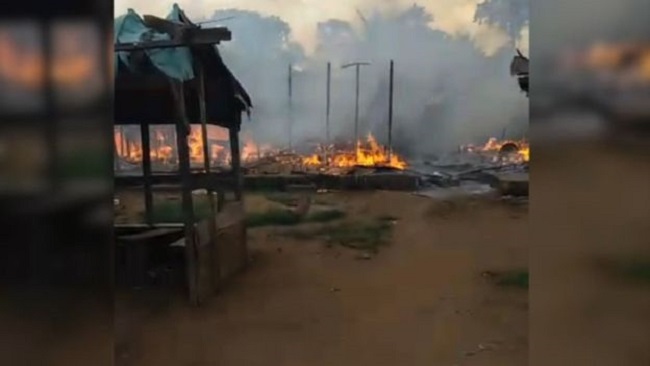Southern Cameroons crisis ‘worsening’
The humanitarian crisis in the restive English-speaking Northwest and Southwest Cameroon continues to worsen due to an upsurge of the Internally Displaced Persons (IDPs), a new report has said. The two regions have been rocked by violence since late 2016.
According to the latest Displacement Tracking Matrix (DTM) by the International Organisation for Migration (IOM), there were over 444,000 IDPs due to the violence, with heightened insecurity that reduced the already limited access to the affected populations.
The increase in the IDPs has also impacted host communities who have had to share their already scarce resources and basic social services with the new arrivals, according to the European Civil Protection and Humanitarian Aid Operations.
Food assistance
The main needs of the displaced populations include shelter, food assistance, protection and access to health and education, according to the report.
In addition to the internally displaced, over 32,600 other Cameroonians have fled across the border and were registered as refugees in Nigeria with many of them exposed to varied dangers, including risk of food insecurity, the report adds.
The crisis in the anglophone Cameroon started as an industrial strike by lawyers and teachers in 2016, but snowballed into an internal armed conflict in 2017 when separatists joined in and symbolically declared the independence of the state of Ambazonia, comprising the Northwest and the Southwest.
The burning
Despite calls by the 86-year-old President Paul Biya for separatist fighters to drop their arms, the conflict has deteriorated since the beginning of 2019 with attacks on the education and health facilities.
Last week, at least four people died when the Regional Hospital of Kumba, the largest city in the Southwest, was set ablaze.
While separatists accused government forces of orchestrating the burning to tarnish their image, the latter maintained that the former were behind the burning of the medical facility.
Formerly administered as part of Nigeria as a UN trust territory under British control, Southern Cameroon (today’s Northwest and Southwest regions) was incorporated into Francophone Cameroon in 1961.
The East African





